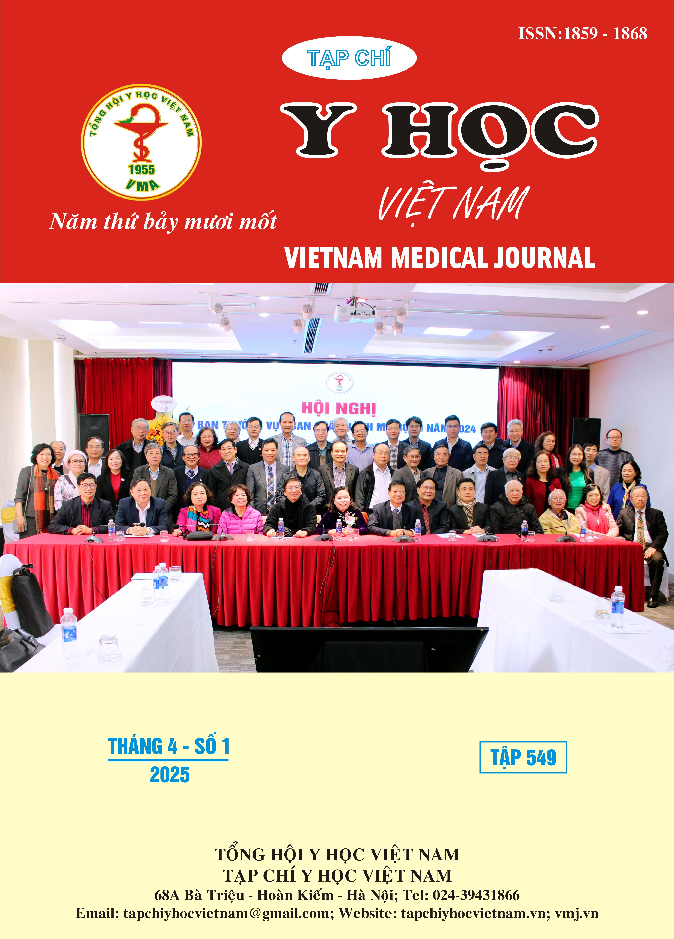EXON 4 LDLR GENE MUTATIONS IN PATIENTS WITH DYSLIPIDEMIA AT CAN THO UNIVERSITY OF MEDICINE AND PHARMACY HOSPITAL
Main Article Content
Abstract
Background: Dyslipidemia characterized by elevated low-density lipoprotein cholesterol (LDL-C) is a major cause of atherosclerotic cardiovascular disease. Mutations in exon 4 of the low-density lipoprotein receptor (LDLR) gene are important contributors to dyslipidemia and serve as key markers for early diagnosis, effective treatment, and complication prevention. Objective: To examine exon 4 LDLR gene mutations in patients with dyslipidemia at the Can Tho University of Medicine and Pharmacy Hospital. Materials and methods: Cross-sectional descriptive design was conducted on 60 patients with LDL-C ≥ 3.4 mmol/L (≥ 130 mg/dL) as per NCEP-ATP III. Determining mutations in exon 4 of LDLR gene by Sanger sequencing method, which were subsequently analyzed for their effect on the functional capacity of the LDL receptor. Results: Sequence analysis of exon 4 LDLR gene resulted in the detection of 16 distinct mutations. Apart from seven identified single nucleotide polymorphisms, two novel mutations were found. That is, c.604T>G (p.Phe202Val), a missense mutation, predicted to be deleterious to protein function according to PolyPhen-2 (0.997) and SIFT (0.011) analysis. However, c.654T>C (p.Gly218=) is a synonymous mutation that is not expected to cause any structural or functional change in the LDL receptor. Conclusion: This preliminary study identified sixteen mutations in exon 4 of the LDLR gene in the dyslipidemia patients of which two (c.604T>G and c.654T>C) were novel.
Article Details
Keywords
LDLR, dyslipidemia, mutation, c.604T>G, c.654T>C
References
2. Kien N. T., et al (2023), Prevalent Variants in the LDLR Gene Impair Responsiveness to Rosuvastatin among Family Members of Patients with Premature Myocardial Infarction, 13 (12), pp. 1725.
3. Leigh S., et al (2017), The UCL low-density lipoprotein receptor gene variant database: pathogenicity update, 54 (4), pp. 217-223.
4. Mendis S., et al (2011), Global atlas on cardiovascular disease prevention and control, pp. 1-155.
5. O’Leary N. A., et al (2024), Exploring and retrieving sequence and metadata for species across the tree of life with NCBI Datasets, Scientific Data, 11 (1), pp. 732.
6. Sturm A. C., et al (2021), Limited-Variant Screening vs Comprehensive Genetic Testing for Familial Hypercholesterolemia Diagnosis, JAMA Cardiology, 6 (8), pp. 902-909.
7. World Health Organization. The top 10 causes of death, 2021.
8. Ying S., et al (2023), Polygenic risk for triglyceride levels in the presence of a high impact rare variant, BMC Medical Genomics, 16 (1), pp. 281.


